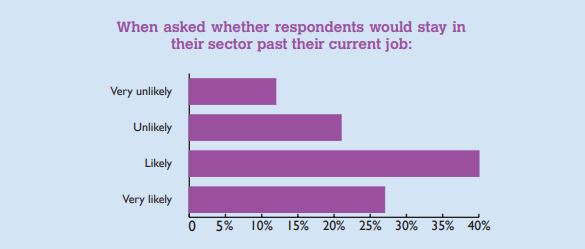
A study by the Early Years Workforce Commission, a steering group made up of leaders from across the sector, found that existing challenges facing the sector’s workforce have been exacerbated by the Covid pandemic, weakening provision that was already experiencing difficult circumstances.
A survey of practitioners from across the sector, carried out during August and September last year, found that one in three respondents (33 per cent) were thinking of leaving the sector after their current job role, with only 23 per cent of the workforce feeling that their job was safe since the Covid pandemic began.

Register Now to Continue Reading
Thank you for visiting Children & Young People Now and making use of our archive of more than 60,000 expert features, topics hubs, case studies and policy updates. Why not register today and enjoy the following great benefits:
What's Included
-
Free access to 4 subscriber-only articles per month
-
Email newsletter providing advice and guidance across the sector
Already have an account? Sign in here

